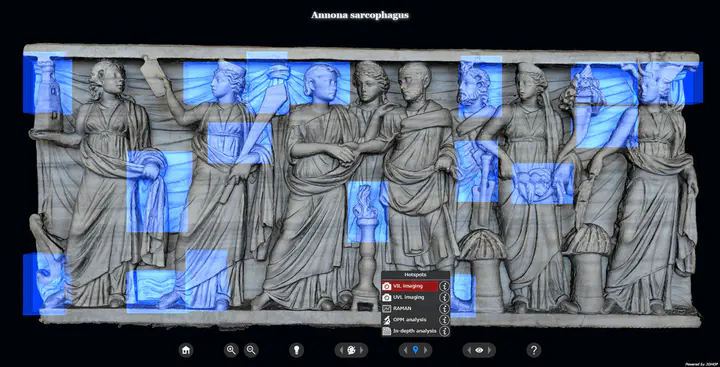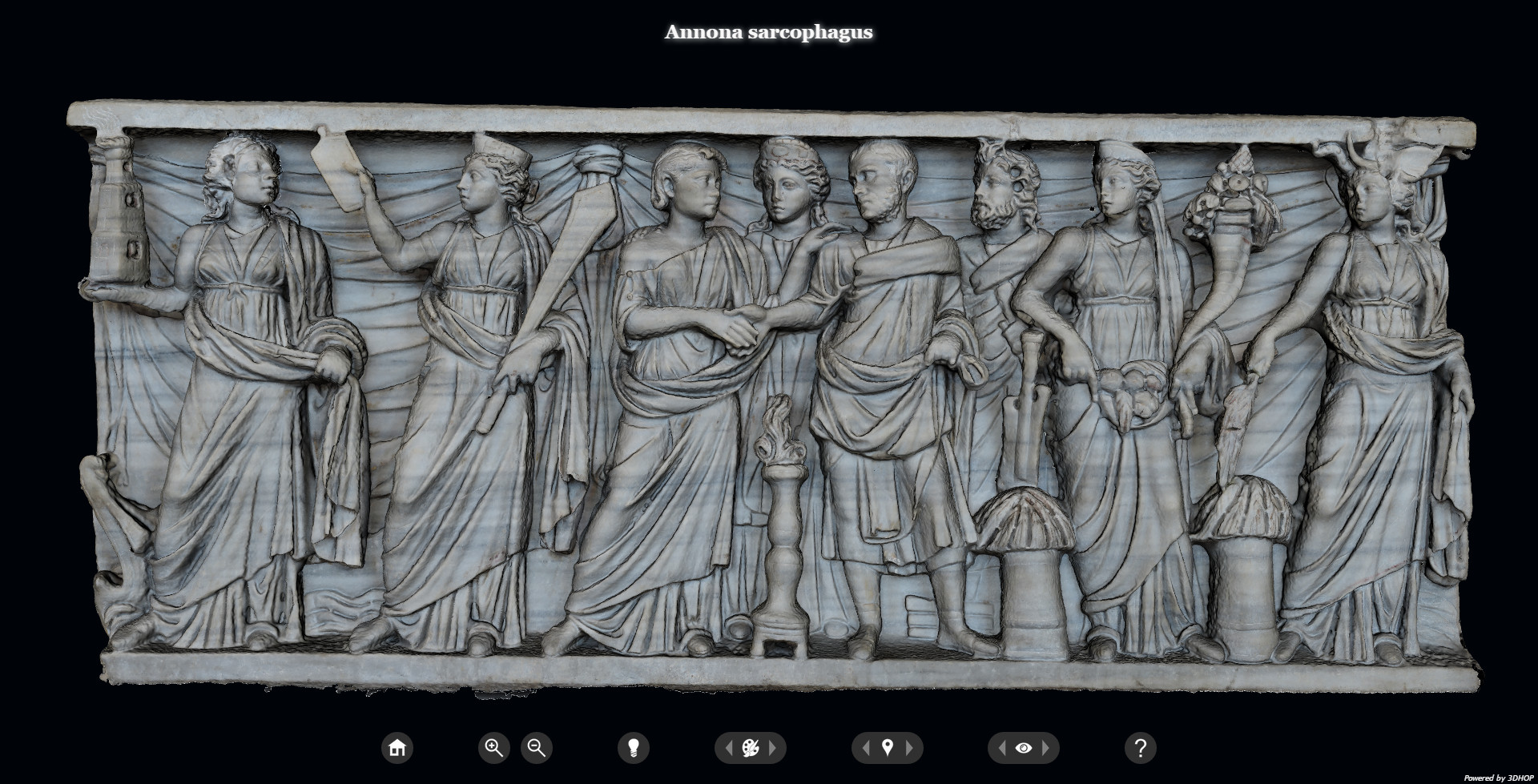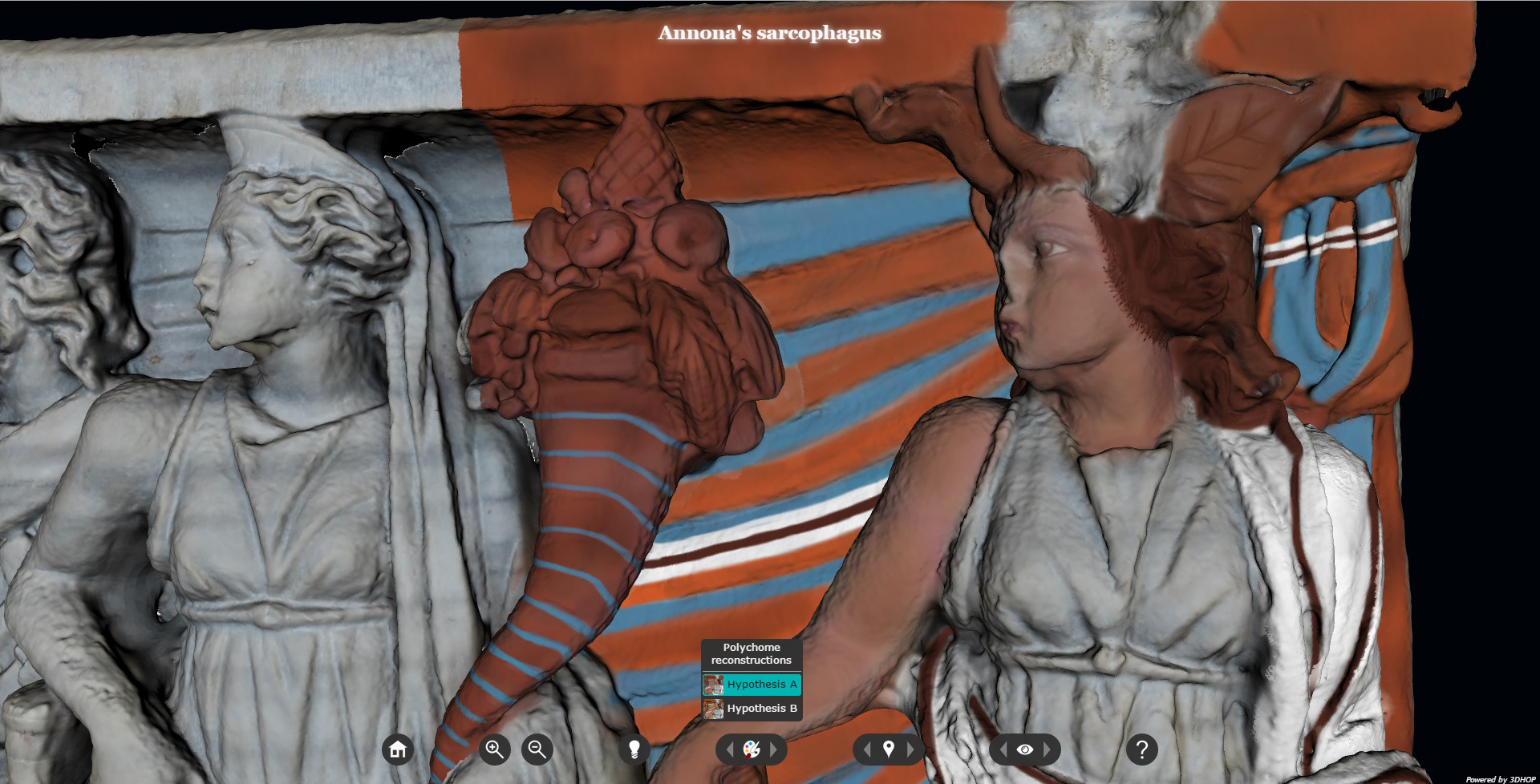Digital Study and Web - based Documentation of the Colour and Gilding on Ancient Marble Artworks

Abstract
Greek and Roman marble artworks have been deeply studied from a typological and stylistic point of view, while there is still a limited knowledge on the pigments, dyes, binders and technical expedients used by Roman artists. In a renewed scientific interest towards the ancient polychromy (colour and gilding), a digital methodological and multidisciplinary approach can provide valuable information to better investigate and understand this fundamental aspect and to get a complete sense on Greek and Roman marble artworks. Following this research direction, the paper proposes a systematic methodological process defined to detect, document and visualize the preserved (and in some cases the digital reconstructed) original colour and gilding on Roman marble sarcophagi (II-IV century AD). The process defines a working pipeline that, starting from the selection of the artefact to study, proposes a set of investigation steps to improve our knowledge of its original painting. These steps include the direct virtual inspection, the archaeological and historical research, the on-site scientific investigation by multispectral imaging, spectroscopic and elemental analysis (eventually supported by micro-invasive techniques performed in laboratory), the accurate polychrome surface acquisition by colour calibrated 2D images. All the data produced are integrated with a high-resolution 3D model to support enhanced analysis and comparison and to create a digital 3D polychrome reconstruction by virtual painting. Finally, all those data are also made accessible on the web by using a cutting edge platform for visual media publication and interactive 3D visualization. This systematic and multidisciplinary process was tested on the so-called “Annona sarcophagus” (Museo Nazionale Romano - Palazzo Massimo, inv. no. 40799).

